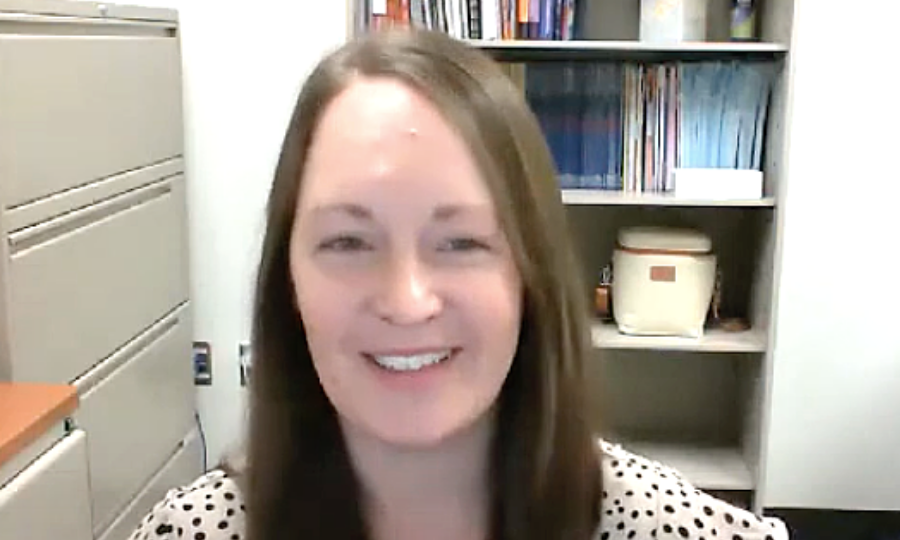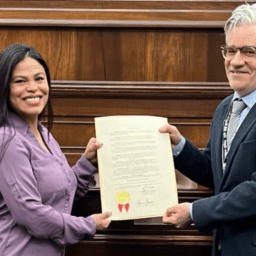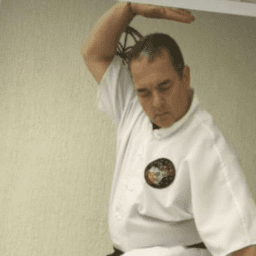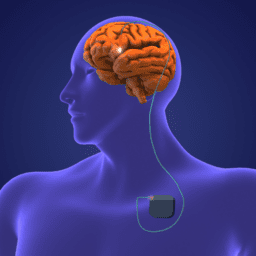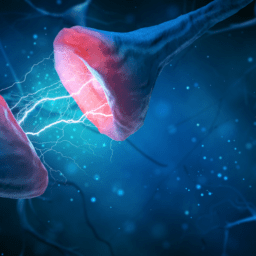The Davis Phinney Foundation proudly supports and funds research projects that address quality of life for people living with Parkinson’s. While we’re all hoping for a cure, our research focuses on therapies and strategies to help people live well with Parkinson’s TODAY.
On our Science Advisory Board, we work with leading experts in quality of life research to change what it means to live with Parkinson’s. We work closely with innovative thinkers both through the work we fund and as advisors.
For Parkinson’s Awareness Month, we’re shining a spotlight some of the amazing research being done and the driving forces behind it. Today, we are happy to feature an interview with Dr. Michelle Fullard, MD, MSCE, one of the leading researchers behind the Davis Phinney Foundation-funded research proposal Removing Barriers to Deep Brain Stimulation for Women with Parkinson’s.
show notes
- Dr. Michelle Fullard and her team, Dr. Megan Morris and Dr. Drew Kern, are primarily interested in the gender differences that exist within Parkinson’s, particularly when it comes to clinical differences and the kind of care received. Studies have shown that women are 30% less likely to receive Deep Brain Stimulation (DBS) than men, nationwide. This led to the creation of their present research study, Removing Barriers to Deep Brain Stimulation Surgery for Women with Parkinson’s Disease
- Michelle says that in their preliminary research, they found that women are less likely to be referred for Deep Brain Stimulation, less likely to be given information about the surgery itself, and are more likely to decline surgery even after they have been approved. One factor that may contribute to these statistics is that women, more often than men, are caregivers, and may not feel comfortable or able to abandon that role to have surgery. Another contributing factor may be that women tend to be more concerned about the burden they are putting on others. Finally, women are more likely to inquire about additional information and advice before moving forward with a medical decision, which may result in ultimately declining the surgery for lack of enough information
- For this study, Michelle and her team will conduct interviews of men and women with Parkinson’s to better understand what barriers may be present in the Deep Brain Stimulation process
- They also hope to implement a pilot program in which Deep Brain Stimulation candidates are given a decision aid (to help with their DBS decision process) and access to Parkinson’s ambassadors who have undergone the DBS process themselves, to see if these resources may show different results in the number of women who receive the surgery
Additional resources and topics discussed
Removing Barriers to Deep Brain Stimulation Surgery for Women with Parkinson’s Disease
Life Before and After Deep Brain Stimulation
Your DBS Questions Answered with Dr. Helen Brontë-Stewart

Michelle Fullard is an Assistant Professor of Neurology at the University of Colorado and a sub specialist of movement disorders
SUPPORT OUR SPRING RESEARCH CAMPAIGN
More and more people apply for funding every year. With your help, we can fund more research that can improve quality of life for people living with Parkinson’s today. Join us now through the end of Parkinson’s Awareness Month to play an essential role in this research by supporting our Quality of Life Research Fund. Click here to learn more about how your contributions help our Science Advisory Board say “yes” to more promising research projects that change people’s lives.


